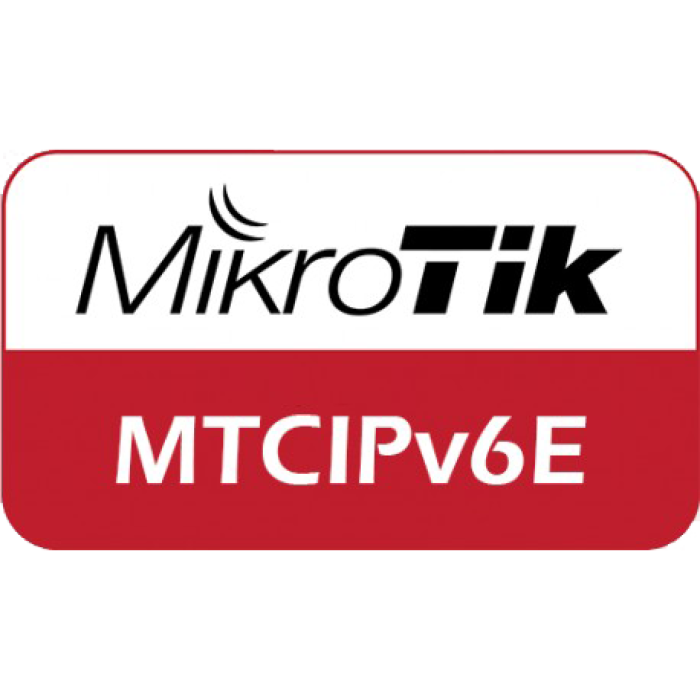MikroTik Certified IPv6 Engineer
The training is dedicated to the operation of the IPv6 protocol and the configuration of MikroTik RouterOS for IPv6 networks.
The MikroTik MTCIPV6E course will use theory and practical labs covering the topic of IPV6. Specifically the differences between IPv4 and IPv6, Address and address notation, SLAAC, Subnetting, Address types, (Link-local, Global, Multicast, Anycast, Unique local and Special addresses) and Reserved IPv6 addresses. Also about the IPv6 Protocol itself, especially Address auto-configuration using SLAAC and DHCPv6, Neighbor discovery and IPv6 routing basics including IPV6 prefixes. The formation of an IPv6 Packet, looking at the IPv6 header, the field description, next header (daisy chaining), fragmentation and Path MTU discovery. It will also cover how IPV6 can utilise IPSec to secure communications, also covering ICMPv6, how the Neighbor discovery protocol provides router solicitation and advertisement, neighbor solicitation (both duplicate address detection and neighbor unreachability detection), neighbor advertisement (both ‘Managed address configuration’ flag and ‘Other configuration’ flags) and redirect. MLD (Multicast Listener Discovery), temporary addresses, firewalling and IPsec (AH, ESP and AH+ESP). Transition Mechanisms such as using a dual stack, 6to4 tunnel, 6RD, Teredo and DS-lite (Dual stack lite). Finally covering Interoperability by examining IPv6 pools, the DHCP PD server and client, DHCPv6 client, IPIPv6, EoIPv6, GRE6, DNS, Reverse DNS and NTP as well as PPP IPv6 support, IPV6 Routing, global addresses as in IPv4 and link-local addresses in IPv6. We will also discuss those features that are not fully implemented yet in RouterOS! Such as NAT, HotSpot, RADIUS integration, Policy routing, DHCPv6 server
Enrollment in this course is possible only if you have a valid MTCNA certification!

No questions about this product, be the first and ask your question.



